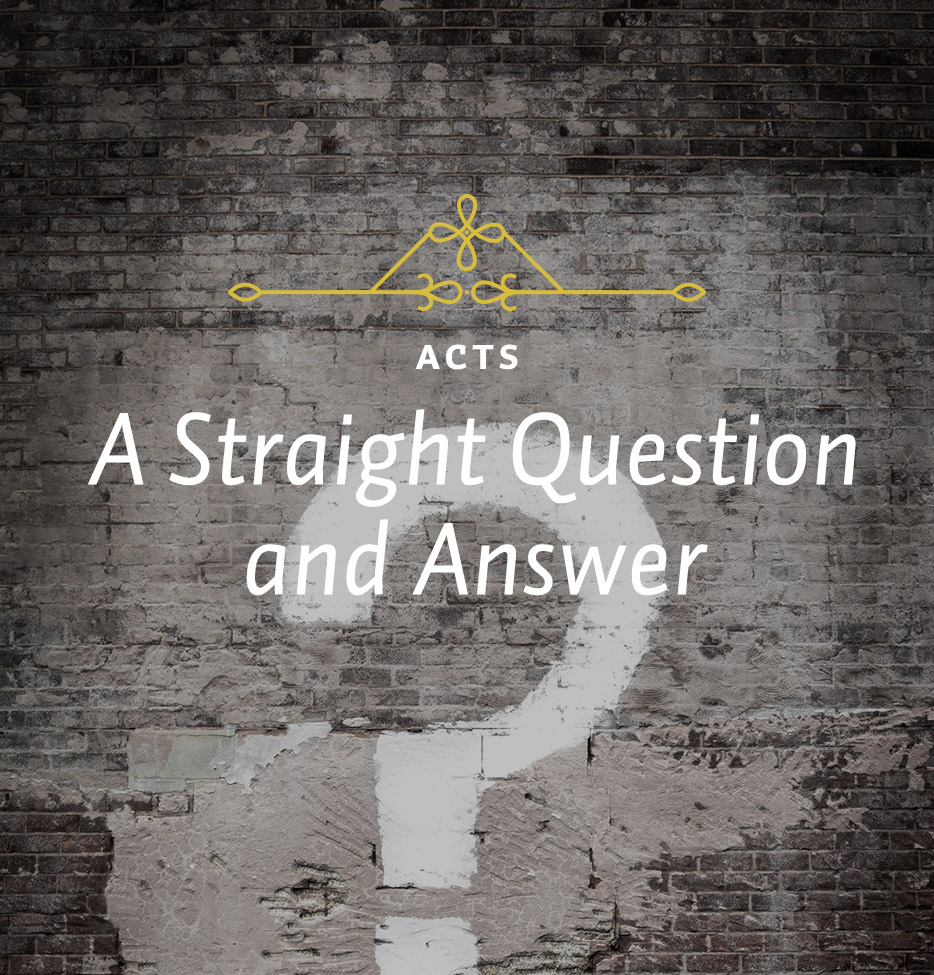Paul’s conversation with the jailor was the third of three striking conversions that Luke records as having taken place at Philippi, those of Lydia, the business woman; the unnamed slave girl; and the Philippian jailer. John Stott calls attention to the fact that “the head of a Jewish household would use the same prayer every morning, giving thanks that God had not made him a Gentile, a woman or a slave. But here were representatives of these three despised categories redeemed and united in Christ. For truly, as Paul had recently written to the Galatians: ‘There is neither Jew nor Greek, slave nor free, male nor female, for you are all one in Christ Jesus.’”1
When Paul said to this jailer, “Believe on the Lord Jesus Christ, and you will be saved—you and your household,” was he promising what has come to be called in some circles, “household salvation”? Was he promising that whenever one person in a household believes everybody else in that household will inevitably believe also? Can you count on that invariably? No, I do not think the Bible teaches that, though Paul was saying that this is what would follow in this instance. However, if it happened in this instance, it is probably what we should expect under comparable conditions. Moreover, it is what we do see frequently. When God calls one of a family, it is often the means by which He draws others into the Gospel net.
The next morning the magistrates gave orders for the two missionaries to be released. We do not know why, perhaps because being Romans and being particularly sensitive to matters of legal justice they realized that there was no real charge against them. Whatever the reason, we know how Paul answered. He said in effect, “Nothing doing. We are not just going to come out of the prison and then slip away quietly. They have condemned us unjustly, and they have beaten and imprisoned us without a trial. That is criminal conduct against one who is a Roman citizen.”
This was a Roman town. These people were concerned about observing Roman laws. Unknown to them but nevertheless in a culpable way, they had broken these laws, and as a result they were frightened. So when Paul demanded that the magistrates not only release them but actually come and lead them out, they did.
Why did Paul insist on that? I think he had in mind the safety of the church he was to leave behind. He wanted to do everything he could to establish and protect it. And although I do not know this, perhaps that is even why he did not declare that he was a Roman citizen when they were about to beat him earlier. He did that later in Jerusalem. It may be that he did not do it here in order to place the magistrates in a difficult position and so provide a basis for the future protection of the church. However, when the magistrates requested that the missionaries leave the city, Paul did not insist on his rights but obeyed the wishes of the magistrates.
The story ends by saying that after they had been brought out of prison Paul and Silas went back to Lydia’s house where they met with the brothers “and encouraged them” (v. 40). We might think under those circumstances that Lydia and the others should have encouraged Paul and Silas, but it was the other way around. They were the leaders God had sent to Philippi. So they encouraged the little church they left behind.
I notice one other interesting thing. Luke decided to stay behind, too. We know this because at this point Luke drops the first-person plural pronoun “we” which he began to use in verse 10, and starts to use the third-person plural pronoun “they.” He says, “Then they left” (v. 40). I do not know why Luke stayed behind. It may be that he was from Philippi, as some have suggested. But perhaps he stayed just to pastor this flock. It was not a prestigious assignment. It had elements of danger. But if this is why he stayed, it indicates that Luke had a pastor’s heart.
1John R. W. Stott, The Message of Acts: To the Ends of the Earth (Leicester, England: InterVarsity, 1990), 269.






